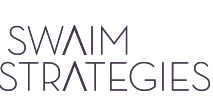Elevating Your Small Organization: Simplifying Donor Stewardship and Engagement
In the bustling world of nonprofits, particularly in small organizations, the weight of multiple roles can often feel overwhelming. So, we sat down with Rachel Bearbower from Small Shop Strategies to talk about simple solutions, automation and AI to reduce burnout and increase donor engagement.
From program management to fundraising, leaders find themselves juggling numerous responsibilities, often leaving little room for strategic engagement with donors. However, optimizing donor stewardship and engagement doesn’t have to be a daunting task. By implementing efficient systems and leveraging technology, small shops can streamline processes and enhance relationships with supporters, ultimately driving greater impact for their missions.
Understanding the Why
It all begins with understanding the essence of your organization’s mission and unique value proposition. As discussed in a recent conversation, the journey starts with identifying your “why” – the core purpose driving your organization’s existence. This introspection lays the groundwork for crafting impactful messaging and engaging with donors authentically.
Crafting Impactful Messaging
To effectively communicate your organization’s mission and impact, it’s essential to articulate compelling stories that resonate with donors. Start by answering fundamental questions:
- What makes your work inspiring?
- What problem are you trying to solve?
- What tangible resources or services do you provide?
- How do these offerings impact the lives of others or the community?
By addressing these questions, you can develop a clear and concise impact statement that captures the essence of your organization’s mission.
AI and Donor Stewardship
One of the key components of successful fundraising is donor stewardship. Timely and personalized acknowledgment of donors’ contributions can significantly impact their perception of your organization. While handwritten thank-you notes may seem ideal, they can be time-consuming and impractical for small teams. Instead, leverage technology to automate the process. Tools like Zapier can integrate your CRM system with your email platform, allowing you to generate draft emails automatically whenever a donation is received. This approach ensures prompt and consistent communication with donors while minimizing administrative burden.
If you want some automation tools and templates to support you in your charity event planning be sure to check out the tools on elevatenonprofit.com.
Embracing Personalization
Although automation streamlines the process, personalization remains paramount. Customize your communications by incorporating donor names, gift amounts, and specific impact stories whenever possible. Demonstrating genuine appreciation and highlighting the tangible outcomes of donors’ support fosters a deeper connection and encourages continued engagement.
Fostering a Culture of Engagement
Beyond transactional interactions, strive to cultivate a culture of engagement within your organization. Encourage staff members to share stories of impact and involve them in donor outreach efforts. By creating opportunities for cross-functional collaboration and storytelling, you empower everyone to contribute to the organization’s fundraising efforts and build meaningful relationships with supporters.
In the dynamic landscape of nonprofit fundraising, small organizations face unique challenges and opportunities. By implementing efficient systems, leveraging technology, and prioritizing authentic engagement, these organizations can elevate their donor stewardship practices and drive sustainable growth. Remember, at the heart of every successful fundraising endeavor lies a genuine connection between organizations and their supporters.
Takeaways
In wrapping up our conversation with Rachel, we’re reminded of the wisdom she shared about the importance of clear communication, setting boundaries, and embracing the human side of our work. As she eloquently put it, “Clear is kind.” Whether it’s in our relationships with donors, board members, or colleagues, clarity and honesty can go a long way in preventing misunderstandings and fostering trust.
Rachel also shed light on the power of automation and systems to alleviate some of the burdens we face in our day-to-day work. By using tools like email marketing platforms and leveraging automation to handle repetitive tasks, we can free up more time to focus on what truly matters: building genuine connections with donors and advancing our organization’s mission.
And let’s not forget the importance of self-care and preventing burnout. As Rachel pointed out, burnout is often a sign that we’re pushing ourselves too hard and neglecting our own well-being. By prioritizing self-care, setting boundaries, and recognizing the value of simplicity, we can avoid the trap of constant busyness and find more joy and fulfillment in our work.
“The antidote to burnout is connection” – Rachel Bearbower, Small Shop Strategies
To hear more from Rachel, listen to our podcast episode with her HERE







